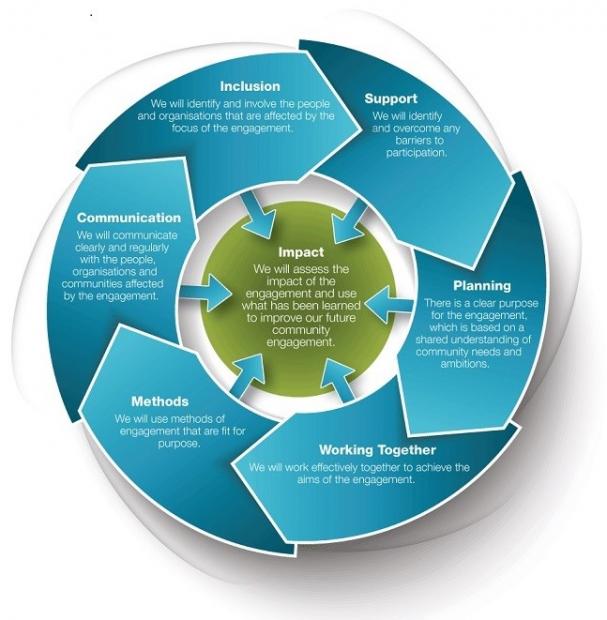The National Standards for Community Engagement are good-practice principles designed to support and inform the process of community engagement, and improve what happens as a result.
They were originally launched in 2005 and since then they have been used to support community engagement, and user involvement, in Scotland in areas such as community planning and health and social care. They have been widely accepted by a range of practitioners as key principles for effective practice.
During 2015/2016, the National Standards for Community Engagement were reviewed and updated. The aim of this review was to reflect the developing policy and legislation relating to community empowerment in Scotland, and to build on the growing range of practice.
The review process was very inclusive and drew on contributions from a wide range of community organisations, third sector (voluntary) organisations and public sector bodies.
The 7 National Standards for Community Engagement
Each of the National Standards for Community Engagement includes a short headline statement, a set of indicators to show progress towards meeting each standard.
The following terms are used throughout the National Standards for Community Engagement.
- ‘We' refers to the leaders or organisers of the community engagement process.
- ‘Partners' are any organisation or group who is involved in planning or delivering the community engagement process.
- ‘Participants' are all of the people or groups who are actively involved at any level throughout the community engagement process.
- ‘Community' is a group of people united by at least one common characteristic, including geography, identity or shared interests.





